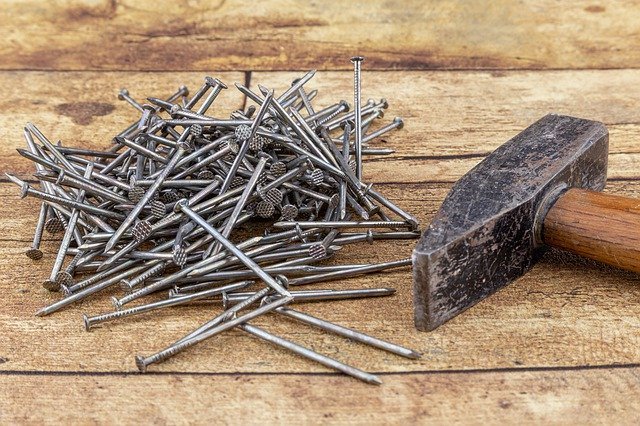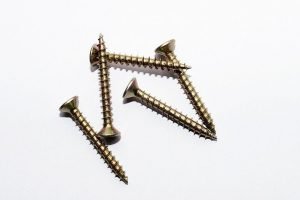
There are lots of problems that can go wrong with plumbing. Some plumbing problems require only a simple fix; however, but others can be a little more challenging. Whatever the problem, you need to be educated about plumbing so you will know if you need to call a plumber, make sure you know a lot about plumbing so it can be fixed quickly.
To prevent pipes from freezing, don’t let temperatures drop under freezing in your home, and insulate external pipes. Pipes will freeze if they are exposed to temperatures below freezing. In the very least, you could lose running water inside while waiting for the pipes to unfreeze. However, frozen pipes often burst, causing damage to your home and a hefty repair bill.
To keep your pipes from freezing in the winter, insulate all exterior pipes and be sure to keep your interior house temperature above freezing, and insulate external pipes. Pipes have the potential to freeze if the surrounding temperatures are below the freezing temperatures. It could take some time in order for the pipes to thaw out so you can have water again. The worst case would be that they burst, which would result in significant repair costs and a mess to clean up.
If you discover a pipe has frozen, open a tap on the line to allow the thawing ice to drain. Doing so provides pressure relief, and might spare you the damage of a burst pipe.
Septic Tank
You plumbing experiences will go much smoother if you know your tools, and have the knowledge of how to use each one. Make sure you read all the directions and manuals, while also taking advantage of online resources and the library to help you with your projects. Before attempting any repairs, plan ahead, or you may make a costly mistake.
You should have your septic tank every five years for best performance. While you may find it costly to get your septic tank cleaned out, it will cost you much more to clean up any sewage backup or to repair or replace your septic tank.
If your garbage disposal is giving you problems, never stick your hand in it to fix it yourself. Garbage disposals are not healthy places for hands to be, even if they are not running. Troubleshooting techniques and schematics of your garbage disposal are available on the Internet.
Knowing all your different tools and how to operate them is essential to any aspiring plumber. Be sure to have a plan ahead of time before trying any type of repair, because it can be expensive to fix mistakes.
If you want to make sure your garbage disposal is going to be around as long as the house it is inside of, make sure you clean it often. You can use dish soap, lemon peels, and cherry pits to get your garbage disposal clean and fresh and running well.
If you aren’t having any luck using a plunger on a clogged toilet, pour some extra water in the bowl to make the plunger effective again. Repeat this procedure if necessary as the water goes back to a lower level.
Putting a cup of any kind of baking soda followed with a cup of white vinegar each month will keep your drain running smoothly. This will cause a chemical reaction to occur and you should plug the drain. Let it sit a few minutes, then wash it all away with boiling water. Although this is useful for clearing away simple clogs made of hair and soap debris, it will not work for serious blockages.
Check the floor for soft areas around the floors. You could save money if you catch these issue sooner.
Be sure that the overflow holes don’t clog up. Overflow holes catch the excess water from an overflowing sink. They may not sound like a matter of great importance until you actually need them. Clear out your sink’s overflow holes every so often, while checking for any other problems or necessary repairs.
Use filters on all drains to prevent debris that might clog the pipes from clogging drains. The bathtub’s strainers need to cleaned out as needed.
If you are seeing water at the bottom of the dishwasher, most likely this is due to a faulty setup of the hose that leads from the kitchen sink. This hose must lead uphill and downhill to prevent mixing water between the kitchen sink and the dishwasher.
Don’t put things like fat, grease or fat into your drain. This is especially damaging to garbage disposal; the fats will make the blades go slower and less freely. Make certain you dispose of oils away from the sink.
To keep possible toilet problems as small as possible, you should prevent using it like it’s a trash can. Do not flush sanitary pads, paper towels, cotton balls, tissues, diapers or other materials, as these items do not dissolve and could cause clogs. Try to minimize the amount of toilet tissue that gets flushed, too – but don’t neglect basic hygiene!
Dish Soap
Enzyme-based products are often superior to other options when your drains are clogged. Enzyme based cleaners use “good” bacteria to transform the clog into a liquid, which will remove it from pipes. The enzyme cleaners are the best on the market.
By regularly using a mixture of dish soap, cherry pits and dish soap, you can make sure that your garbage disposal is running well and smelling so clean it could be new.
Prevention is vital for avoiding costly repairs to your plumbing. Clogs are one of the main reasons people have to call a plumber. Built up hair can actually clog drains. Put a drain cover or a screen that is made to protect drains over your drain so that hair cannot get in. It is easy to get the hair out of a screen; however, removing it from a pipe is a different story.
As was said in the introduction, there are a lot of different things that can cause your plumbing system to fail. Use the tips in the article above to deal with plumbing issues with less stress and confusion.
Frozen pipes can cause some very expensive plumbing repair jobs. Fortunately, you can generally prevent your pipes from freezing. First, insulate your outside pipes well. When colder weather is approach, disconnect your garden hoses and make sure the outside water fixtures are turned off. If you do this, it will help you to save on repair bills.



